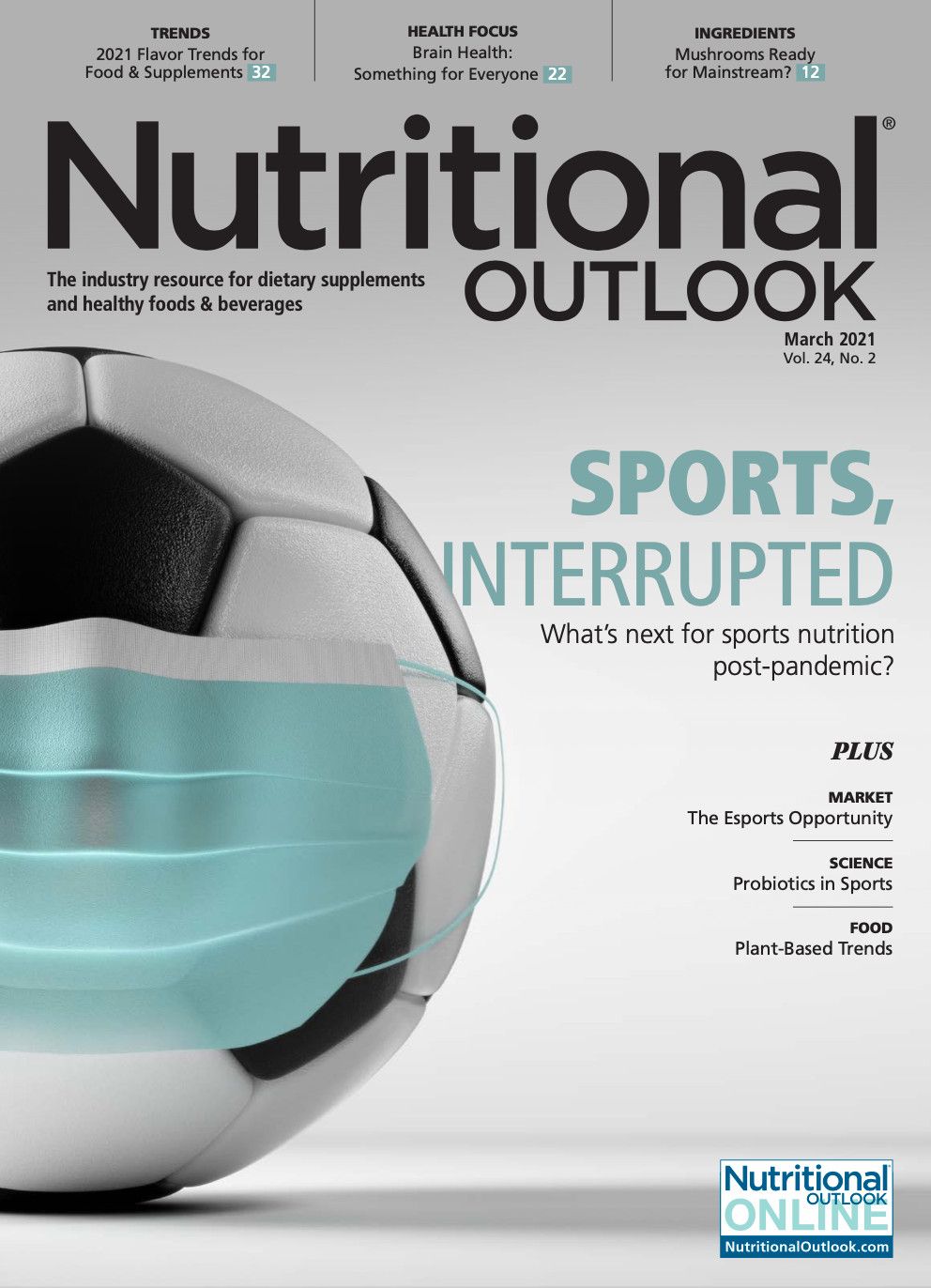Growing trends in esports dietary supplements
Convenience and science are paving the way for new health products for gamers.
In recent years, online gaming has transcended from a popular pastime into a global market phenomenon full of live streaming events, sponsorship opportunities, and professional gaming leagues wherein earnings can rival those of major sport leagues. In 2020, an estimated 2.7 billion gamers were expected to have spent $159.3 billion on video games.1 But there is much more market share to go around.
Health product manufacturers are increasingly finding their own opportunities in esports. By developing dietary supplements intended for the unique needs of gamers, these companies aim to capitalize on an up-and-coming market. Some trends are already evident in the nascent esports category, and others will likely emerge in a short time.
Convenience Formats
For all of the esports dietary supplements on the market today, most are similar in that they’re designed for convenience. XP Sports, a prominent brand in the space that has partnered with the Canadian gaming group Lazarus, demonstrates this in its feature offerings: RTD beverages, gummies, and capsules.
“With XP, we think the sky is the limit with our products,” says Ashley Arndt, communication specialist for XP Sports’ parent company Iovate Health Sciences (Oakville, ON, Canada). “We’ve seen a strong affinity towards our Gamer Gummies, but this space is also inundated with RTD flavor varieties. We’d like to keep up with our competitors in that aspect in addition to new and exciting innovations like one we’re currently working on, which is unlike anything on the market to date.”
RTD beverages largely dominate the space right now, but gummies, premix powders, capsules, and bars are expected to penetrate more and more as they can all assimilate to gamer lifestyles. These products can be consumed during game play or immediately before or after with little effort.
Energy and Brain Health
The esports health category has its beginning in energy drinks. Longstanding brands geared toward gamers, and many new ones, have caffeine and creatine as their primary active ingredients. While a stimulant like caffeine will likely continue to prevail in esports products, it's increasingly being paired with L-theanine and other ingredients for what suppliers believe offer more well-rounded cognitive performance. And some alternative ingredients make a case of their own for energy and brain health benefits.
“I believe caffeine will always be a strong player in the field, since caffeine is the most used stimulant in the world,” says Braxton Wright, sales manager for ingredient supplier Chemi Nutra (Austin, TX). “But synergistic/complementary ingredients will be the real game changers, such as our AlphaSize alpha-GPC.”
Chemi Nutra’s ingredient, an alpha-glycerylphosphorylcholine, which is a precursor of choline in the brain, is supported by a clinical trial in which 13 young adults performed virtual reality game play after consuming AlphaSize or placebo in double-blind, crossover fashion. The active ingredient was associated with improved game performance and improvements in self-reported feelings such as focus, vigor, and jitteriness. A clinical trial focusing specifically on a gaming population is no normal undertaking in the category. Projects such as this, however, may be especially useful for finding success in a market full of sophisticated consumers.
Nutrition21 (Harrison, NY) is benefiting from having conducted its own research, too, which was published in the journal Nutrients back in 2019.2 The company’s nooLVL ingredient is an “optimized” dose of inositol with bonded arginine silicate.
“Found at high levels in the brain, inositol is important for brain health and function, and it has been shown to benefit mood and cognition,” says Elyse Lovett, Nutrition21’s vice president of marketing. “nooLVL is the first cognitive-performance ingredient that has been studied in a gaming population, an important aspect for formulation.” When compared to a placebo in a placebo-controlled study on gamers, the ingredient was associated with reduced errors in game play and self-reported improvements in energy and decreases in anger. Compared to caffeine, it’s stimulant-free.
nooLVL is now featured in products geared towards gamers for a dozen different brands, including the XP Sports portfolio of products: its Boost brand of carbonated RTD, a Boost ready-to-mix powder, and Zero Lag capsules.
Eye Health
Chief among the concerns of dedicated gamers should be eye health. Countless hours spent in front of computer monitors can put considerable stress on the eyes and, for this, ingredient suppliers offer their own solutions.
AffronEye saffron extract from Pharmactive Biotech SL (Madrid, Spain) is one such offering. It falls back on research linking consumption of saffron extract and antioxidants in general to improvements in macular and retinal health. The company takes its ingredient a step further by standardizing it for 3% crocins, the major carotenoids found in saffron.
“Pharmactive’s advanced organic formulation ensures that these compounds are rapidly absorbed and can reach the maximum concentration in blood after only 1.5 hours, which is considered high speed when comparing with other carotenoids,” says Julia Diaz, Pharmactive’s head of marketing. “We apply our proprietary, patented extraction process that allows AffronEye to be effectively used at 20 mg/day.”
AffronEye is offered in a number of different markets right now, especially Asia. The onset of the Covid-19 pandemic has only served to intensify concerns around prolonged gaming and the need for beneficial eye health solutions.
An alternative ingredient competing in this segment of the market is lutein, a carotenoid found in high concentration in marigold flowers.
Market Potential
As esports continue to grow in popularity, so too will the financial opportunities. Industry members expect exponential growth for esports dietary supplements, and brands will have increasingly new opportunities for product differentiation, whether by delivery format, clinically backed active ingredients, or other means of branding.
Highly scientific ingredients and simple herbal extractions will likely continue to penetrate the market, and quality should remain top of mind for brands involved in this growing international market space.
References
- Newzoo. Global Games Market Report 2020. Published June 2020. Accessed here.
- Tartar J et al. “A prospective study evaluating the effects of a nutritional supplement intervention on cognition, mood states, and mental performance in video gamers.” Nutrients, vol. 11, no. 10 (October 1, 2019): 2326


.png&w=3840&q=75)

.png&w=3840&q=75)



.png&w=3840&q=75)



.png&w=3840&q=75)






















